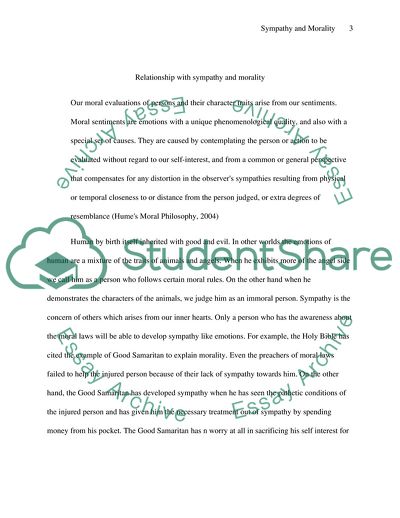Cite this document
(Sympathy and Morality Term Paper Example | Topics and Well Written Essays - 2000 words - 14, n.d.)
Sympathy and Morality Term Paper Example | Topics and Well Written Essays - 2000 words - 14. https://studentshare.org/philosophy/1731115-sympathy-and-morality
Sympathy and Morality Term Paper Example | Topics and Well Written Essays - 2000 words - 14. https://studentshare.org/philosophy/1731115-sympathy-and-morality
(Sympathy and Morality Term Paper Example | Topics and Well Written Essays - 2000 Words - 14)
Sympathy and Morality Term Paper Example | Topics and Well Written Essays - 2000 Words - 14. https://studentshare.org/philosophy/1731115-sympathy-and-morality.
Sympathy and Morality Term Paper Example | Topics and Well Written Essays - 2000 Words - 14. https://studentshare.org/philosophy/1731115-sympathy-and-morality.
“Sympathy and Morality Term Paper Example | Topics and Well Written Essays - 2000 Words - 14”. https://studentshare.org/philosophy/1731115-sympathy-and-morality.


